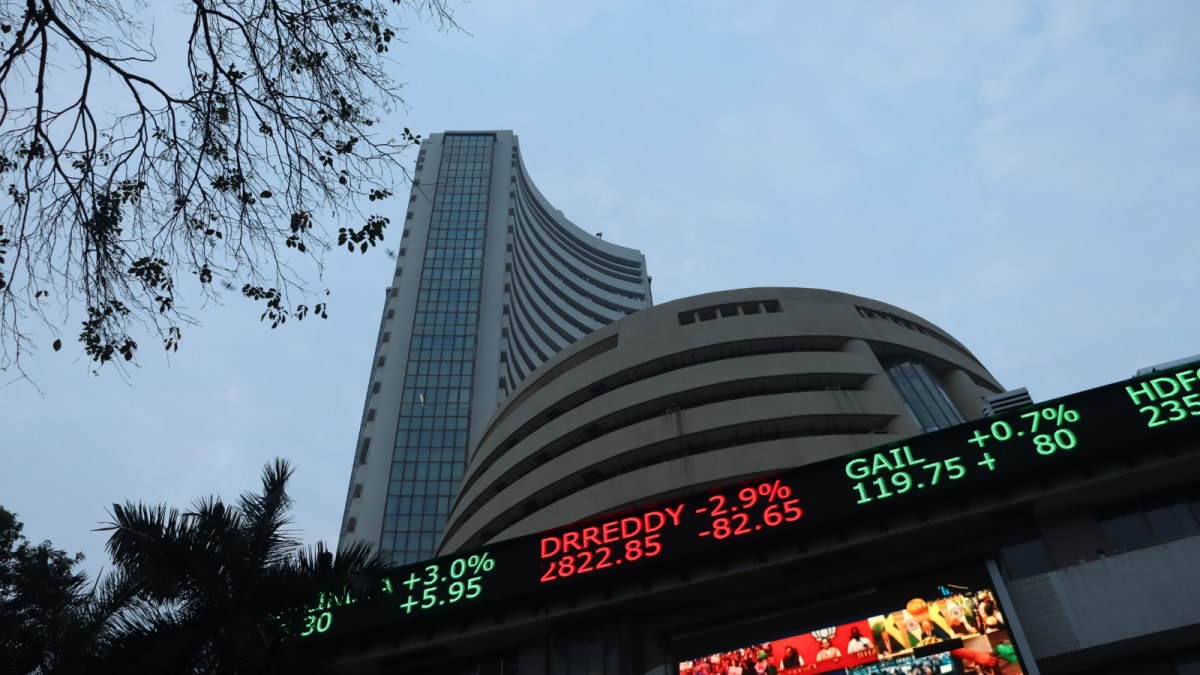Business
GST 2.0 impact: Companies rush to hire temporary staff; rate cuts expected to boost festive buying – The Times of India

Companies across consumer electronics, e-commerce, automobiles, retail, logistics, and FMCG are rushing to hire temporary staff as India’s festive season kicks off, following reduced GST rates from September 22. Industry experts say many shoppers had postponed purchases earlier this season, which dented sales, but with firms passing on GST cuts through price reductions, buyers are expected to spend more freely, prompting companies to step up hiring and marketing. Staffing agencies including Quess, Randstad, and CIEL HR report that demand is highest for frontline and fulfilment roles. This includes in-shop demonstrators, retail sales staff, warehouse pickers and packers, last-mile delivery personnel, and service technicians for appliances and electronics. Contact-centre and back-office staff are also being scaled up to handle higher order volumes. “Several sectors that already ran festive hiring drives are now extending mandates and adding last-minute temp headcount in response to the GST rate cuts and the expected post-cut sales surge,” Aditya Narayan Mishra, MD of CIEL HR told ET. “Demand is strongest in consumer durables, followed by auto and large BPO/CRM operations,” Mishra further added. Shilpa Subhaschandra, chief commercial officer, Operational Talent Solutions, Randstad India, said, “We are seeing clients, particularly in ecommerce, quick-commerce, consumer electronics, auto, retail, logistics, and FMCG extend and add last-minute mandates beyond their original plans to capture the anticipated jump in festive sales.”Subhaschandra further told ET, “On average, these additional mandates translate to a 20-25% uplift in temporary workforce requirements versus last year, with quick-commerce platforms showing the largest thrust, expanding headcount by 40-60% to handle surge volumes.” The festive season that began with Onam in August and runs through Diwali, is India’s biggest shopping period, accounting for 25–30% of annual sales for most consumer goods companies. However, early sales during Onam in Kerala and pre-Durga Puja in East India were subdued as consumers waited for the GST reduction. Industry executives expect strong sales to continue through Christmas as pent-up demand is released. Retailers and electronics chains are hiring up to 20% more temporary staff to manage the anticipated rise in demand from Navratri to Diwali. Auto companies including Mahindra & Mahindra and Maruti Suzuki are also increasing staffing requirements, according to recruitment firms. Email queries to these companies went unanswered. Leading electronics retailer Vijay Sales is expanding its temporary workforce by 10–15% this festive season, said director Nilesh Gupta. He added that demand is expected to rise for large-screen televisions and air conditioners, where GST has been reduced from 28% to 18%. Daikin India, a Japanese AC manufacturer, is boosting shopfloor promoters and increasing its marketing budget to recover from a recent sales slump, said managing director KJ Jawa. Great Eastern Retail will also hire more temporary staff in its top 20 high-footfall stores than originally planned, said Pulkit Baid, director of the East and North India-focused electronics chain. Auto companies have increased hiring by 20–25%, while e-commerce staffing is growing steadily at 15–20%, with a further surge expected over the next two weeks, said Nitin Dave, CEO of Quess Staffing Solutions told ET. “While broad salary levels have not shifted significantly, some employers are offering attendance and joining bonuses to attract talent,” he added.
Business
Software Engineering To Be Obsolete In A Year? Anthropic CEO Warns, Vembu Says Pay Attention

Last Updated:
Dario Amodei of Anthropic warns at Davos that AI could make software engineering obsolete within a year, a view supported by Sridhar Vembu of Zoho.


Dario Amodei of Anthropic warns at Davos that AI could make software engineering obsolete within a year, a view supported by Sridhar Vembu of Zoho. (Pic: Wikipedia)
Software engineering may be the profession feeling the sharpest impact of artificial intelligence, with core tasks such as coding increasingly being handled by AI systems. Tech giants like Google, Amazon and Microsoft are already using AI to generate portions of new codebases—a trend expected to accelerate.
Against this backdrop, Dario Amodei, chief executive of Anthropic, has issued a stark warning: software engineering as a profession could effectively become obsolete within the next 12 months. While the claim has sparked debate, it has also drawn support from industry leaders, including Sridhar Vembu, founder of Zoho, who says the warning deserves serious attention.
Amodei made the remarks last month at the World Economic Forum annual meeting in Davos, where he spoke about how rapidly AI is reshaping jobs, productivity and the global economy. He argued that the impact of AI on employment is no longer theoretical, particularly in software development.
The comments went viral online, drawing both agreement and scepticism. Responding to a clip of Amodei’s remarks shared on X, Vembu urged people not to dismiss the warning. “We better pay attention to him because he has the best coding tool in the world,” Vembu wrote, noting that the message carries weight because it comes from the head of a company building some of the most advanced AI coding tools.
Explaining his concern, Amodei said AI is rapidly shifting from being a productivity aid to becoming the primary executor of work. Software development, he noted, is among the clearest examples of this transition. At Anthropic itself, engineers increasingly rely on AI models to generate code, stepping in mainly to review and refine outputs.
“I have engineering leads who have basically said to me, ‘I don’t write any code anymore. I just let Opus do the work and I edit it,’” Amodei said.
While his warning focused on coders, Amodei cautioned that the implications extend far beyond software teams. He said AI could drive significant job losses across industries as models grow more capable at an accelerating pace.
“We basically have a Moore’s Law for intelligence, where the model is getting more and more cognitively capable every few months,” he said, arguing that as AI takes on increasingly complex tasks, the need for large teams of human programmers could shrink dramatically—potentially eliminating job categories that took decades to build.
February 07, 2026, 21:35 IST
Read More
Business
Railways to construct new underground rail line to enhance connectivity in NE

Guwahati: Indian Railways plans to build a new underground railway line to improve connectivity in the Northeastern states. The line will pass through the Siliguri corridor in North Bengal, known as the ‘Chicken’s Neck’.
Northeast Frontier Railway (NFR) Chief Public Relations Officer Kapinjal Kishore Sharma stated that the underground route will run from Tinmile Hat to Rangapani and Bagdogra in the Darjeeling district, West Bengal. Railways Minister Ashwini Vaishnaw has emphasised that the project is intended to provide secure, reliable, and continuous rail connectivity within this strategically significant corridor.
The Katihar Division of NFR will manage the project, which will cover areas in the Darjeeling and Uttar Dinajpur districts of West Bengal and in the Kishanganj district, Bihar.The underground line will extend 35.76 km between Dumdangi and Bagdogra, including a 33.40 km Dumdangi-Rangapani segment. This alignment will provide resilient connectivity through the 22 km Siliguri Corridor, which connects mainland India to the Northeast.
Due to its proximity to the borders with Nepal, Bhutan, and Bangladesh, as well as its susceptibility to natural disasters and security risks, the underground line is regarded as highly significant. It will provide a secure alternative route for defence personnel, military equipment, and emergency relief materials.
The project will facilitate air-rail logistics integration, given its proximity to Bagdogra Air Force Station and Bengdubi Army Cantonment. It will incorporate advanced technologies such as a 2×25 kV AC electrification system, Automatic Signalling (Standard-IV) with VOIP-based communication, bridges designed to RDSO 25-ton axle load standards, and twin tunnels constructed using Tunnel Boring Machine (TBM) and New Austrian Tunneling Method (NATM) techniques.
The development of this underground line demonstrates Indian Railways’ commitment to enhancing strategic infrastructure in the Northeast and aligns with the government of India’s vision for integrated and secure development. NFR, headquartered in Maligaon near Guwahati, operates in the Northeastern states, seven districts of West Bengal, and five districts of northern Bihar.
Business
What is Dakar rally: Inside world’s longest 8,000 km off-road motor vehicle rally; Cars, bikes and trucks go beyond limits here; ‘The survival battle’

Dakar rally: The Dakar Rally is one of the world’s toughest off-road races. It is a multi-stage event covering almost 8,000 kilometres over deserts, dunes, rocks, and rough terrain. Originally held in Africa, the rally has taken place in Saudi Arabia in recent years, attracting top riders, drivers, and teams from across the globe. Participants riding cars, bikes, trucks, light vehicles, and classic vehicles take part in this rally. Harsh temperatures, navigation challenges, and mechanical stress make it a highly competitive race.
The 2026 Dakar Rally was a 14-day, 13-stage, 8,000 km event that took place from January 3 to January 17, 2026, in Saudi Arabia. It saw dramatic racing and close finishes. In the overall motorcycle category, Argentina’s Luciano Benavides clinched victory by just two seconds, one of the closest margins in the event’s history.
In the car category, Qatar’s Nasser Al-Attiyah secured his sixth Dakar Rally title, driving for the Dacia Sandriders team and reinforcing his position as one of the sport’s all-time greats. He led over 8,000 km of racing across Saudi Arabia and finished with a strong lead over the competition. Other notable performances included strong showings from Ford Racing, with podium finishes and stage wins.
India’s participation at Dakar 2026
Indian competitors also secured notable achievements at the 2026 Dakar Rally, with two key figures drawing attention:
Sanjay Takale’s historic run: Veteran Indian rally driver Sanjay Takale made history at the Dakar Rally by winning the H3 class prologue and standing on the Dakar podium in the four-wheel category – a first for an Indian. He finished 35th overall in the cars classification and became the first Indian to achieve this milestone.
Takale’s effort marked a significant moment for Indian motorsport. However, his Dakar campaign later ended due to a mechanical failure, forcing him to withdraw before the end of the event.
Harith Noah competes in bikes: On the two-wheeled side, Harith Noah, a top Indian rally-raid rider from Kerala, also competed in the Dakar Rally’s bike category. Noah has been part of multiple Dakar campaigns and brought valuable experience to one of the world’s most challenging motorsport events.
Indian teams such as Hero MotoSports also participated in the event, maintaining India’s growing presence at Dakar with competitive stage results and notable finishes.
Dakar is more than just a race
The Dakar Rally is more than a race; it is a test of endurance, skill, and strategy. Competitors drive through extreme temperatures, unpredictable terrain, and strict navigation rules that can change standings dramatically from stage to stage. Finishing this event earns respect in the motorsport world, and individual stage wins or class podiums are celebrated worldwide.
The 2026 Dakar Rally showcased challenging terrains, historic individual achievements, and competitive performances across categories.
-

 Tech5 days ago
Tech5 days agoHow to Watch the 2026 Winter Olympics
-

 Fashion5 days ago
Fashion5 days agoCanada could lift GDP 7% by easing internal trade barriers
-

 Fashion1 week ago
Fashion1 week agoItaly’s Brunello Cucinelli debuts Callimacus AI e-commerce experience
-

 Business5 days ago
Business5 days agoPost-Budget Session: Bulls Push Sensex Up By Over 900 Points, Nifty Reclaims 25,000
-

 Tech1 week ago
Tech1 week agoRight-Wing Gun Enthusiasts and Extremists Are Working Overtime to Justify Alex Pretti’s Killing
-

 Tech6 days ago
Tech6 days agoI Tested 10 Popular Date-Night Boxes With My Hinge Dates
-

 Business1 week ago
Business1 week agoVideo: Who Is Trump’s New Fed Chair Pick?
-

 Entertainment5 days ago
Entertainment5 days agoThe Traitors’ winner Rachel Duffy breaks heart with touching tribute to mum Anne









